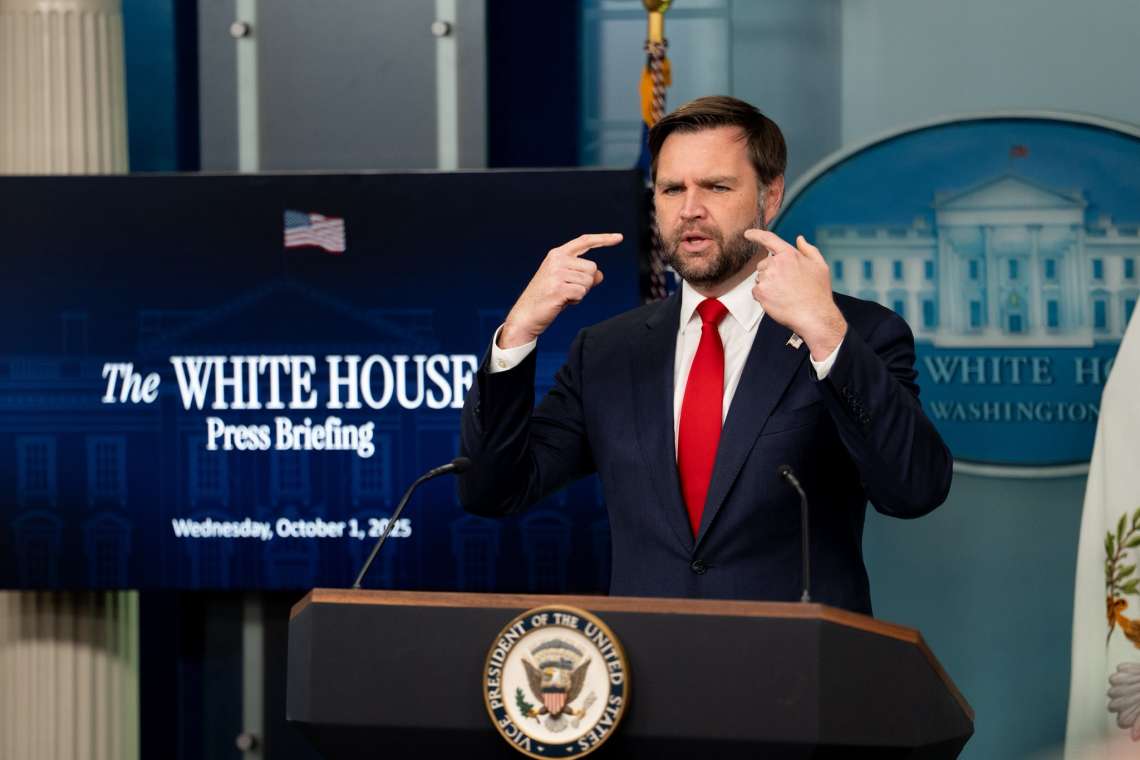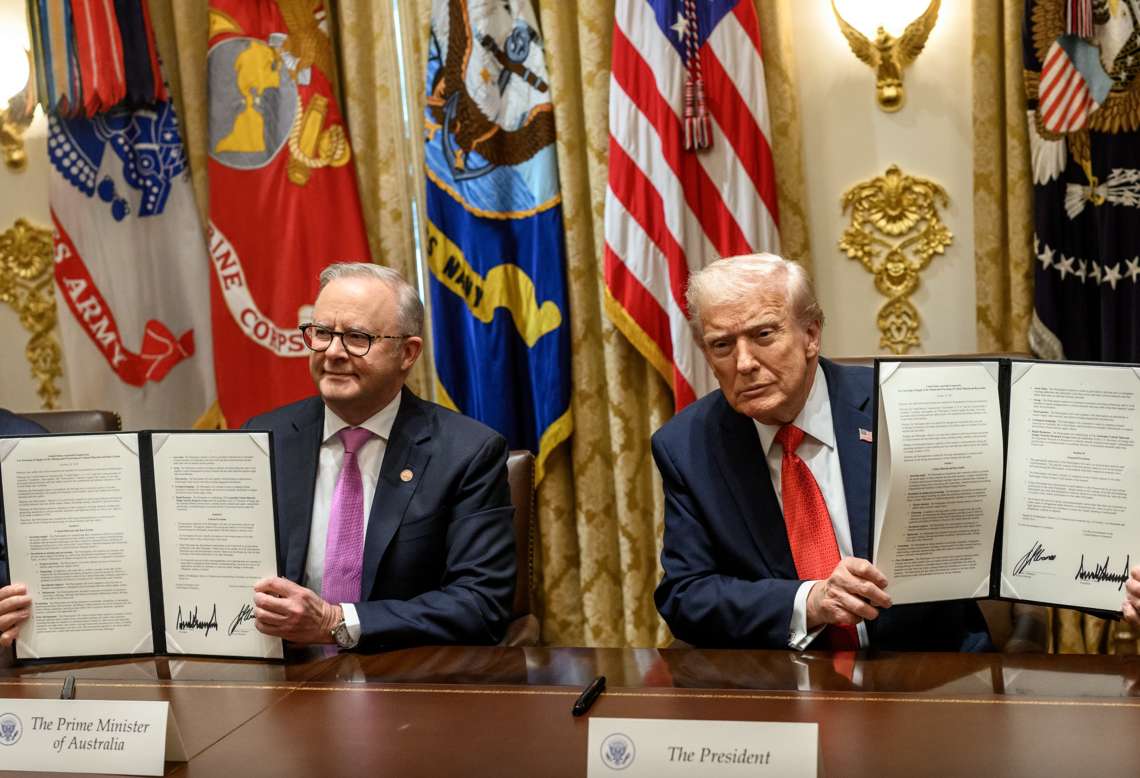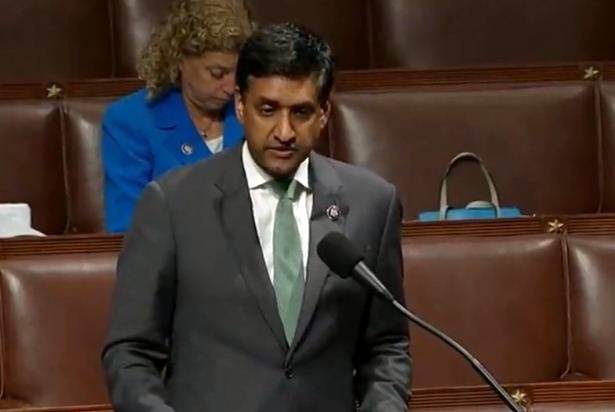The bill passed by a razor-thin 217-215 margin….reports Asian Lite News
House Republicans narrowly passed sweeping legislation Wednesday that would raise the government’s legal debt ceiling by $1.5 trillion in exchange for steep spending restrictions, a tactical victory for Speaker Kevin McCarthy as he challenges President Joe Biden to negotiate and prevent a catastrophic federal default this summer.
Biden has threatened to veto the Republican package, which has almost no chance of passing the Democratic Senate anyway, and the president has so far refused to negotiate over the debt ceiling which the White House insists must be lifted with no strings to ensure America pays its bills.
But McCarthy’s ability to swiftly unite his slim majority and bring the measure to passage over opposition from Democrats and even holdouts in his own party gives currency to the Republican speaker’s strategy to use the vote as an opening bid forcing Biden into talks. The two men could hardly be further apart on how to resolve the issue.
The bill passed by a razor-thin 217-215 margin. “We’ve done our job,” McCarthy said at the U.S. Capitol after the vote.
“The president can no longer ignore by not negotiating,” he said. ”Now he should sit down and negotiate.”
As the House debated the measure, Biden on Wednesday indicated he was willing to open the door to talks with McCarthy, but not on preventing a first-ever U.S. default that would shake America’s economy and beyond.
“Happy to meet with McCarthy, but not on whether or not the debt limit gets extended,” Biden said. “That’s not negotiable.”
Passage of the sprawling 320-page package in the House is only the start of what is expected to become a weekslong political slog as the president and Congress try to work out a compromise that would allow the nation’s debt, now at $31 trillion, to be lifted to allow further borrowing and stave off a fiscal crisis.
The nation has never defaulted on its debt, and the House Republican majority hopes to maneuver Biden into a corner with its plan to roll back federal spending to fiscal 2022 levels and cap future spending increases at 1% over the next decade, among other changes.
McCarthy worked nonstop to unite his fractious Republican majority, the “five families” including the conservative Freedom Caucus and others, making post-midnight changes in the House Rules Committee in the crush to win over holdouts.
Facing a revolt from Midwestern Republicans over doing away with biofuel tax credits that were just signed into law last year by Democrat Biden, GOP House members relented and allowed the tax credits to stay on the books in their bill.
“Our delegation has stood united for Iowa’s farmers and producers fighting to amend the bill to protect biofuels tax credits,” said the four House Republicans from Iowa in a joint statement announcing their support for the bill.
Republicans also agreed to more quickly launch the bolstered work requirements for recipients of government aid, starting in 2024 as proposed by another holdout, Freedom Caucus’ Rep. Matt Gaetz, R-Fla. — who has led previous challenges to McCarthy and ultimately voted against the bill.
Republicans hold a five-seat House majority and faced several absences this week, leaving McCarthy with almost no votes to spare. In the end the speaker lost four Republican no votes, and all Democrats opposed.
“This bill is unacceptable, it’s unreasonable, it’s unworkable, it’s unconscionable — and it’s un-American,” said the Democratic leader Hakeem Jeffries of New York. “That’s why we oppose it.”
Democrats derided the Republican plan as a “ransom note,” a “shakedown” and “an unserious bill” that was courting financial danger.
But as McCarthy worked to shore up support, some of the most conservative rank-and-file Republican members who have never voted for a debt ceiling increase in their quest to slash spending said they were preparing to do just that, rallying behind the speaker’s strategy to push Biden to the negotiating table.
Rep. Ralph Norman, R-S.C., a member of the Freedom Caucus, said he “wanted double” the deficit savings contained in the bill but would vote for it “because it starts the ball, it gets us in the arena to solve the debt problem.”
It’s a first big test for the president and the Republican speaker, coming at a time of increased political anxiety about the ability of Washington to solve big problems amid the need to raise the federal debt limit in a matter of weeks.














